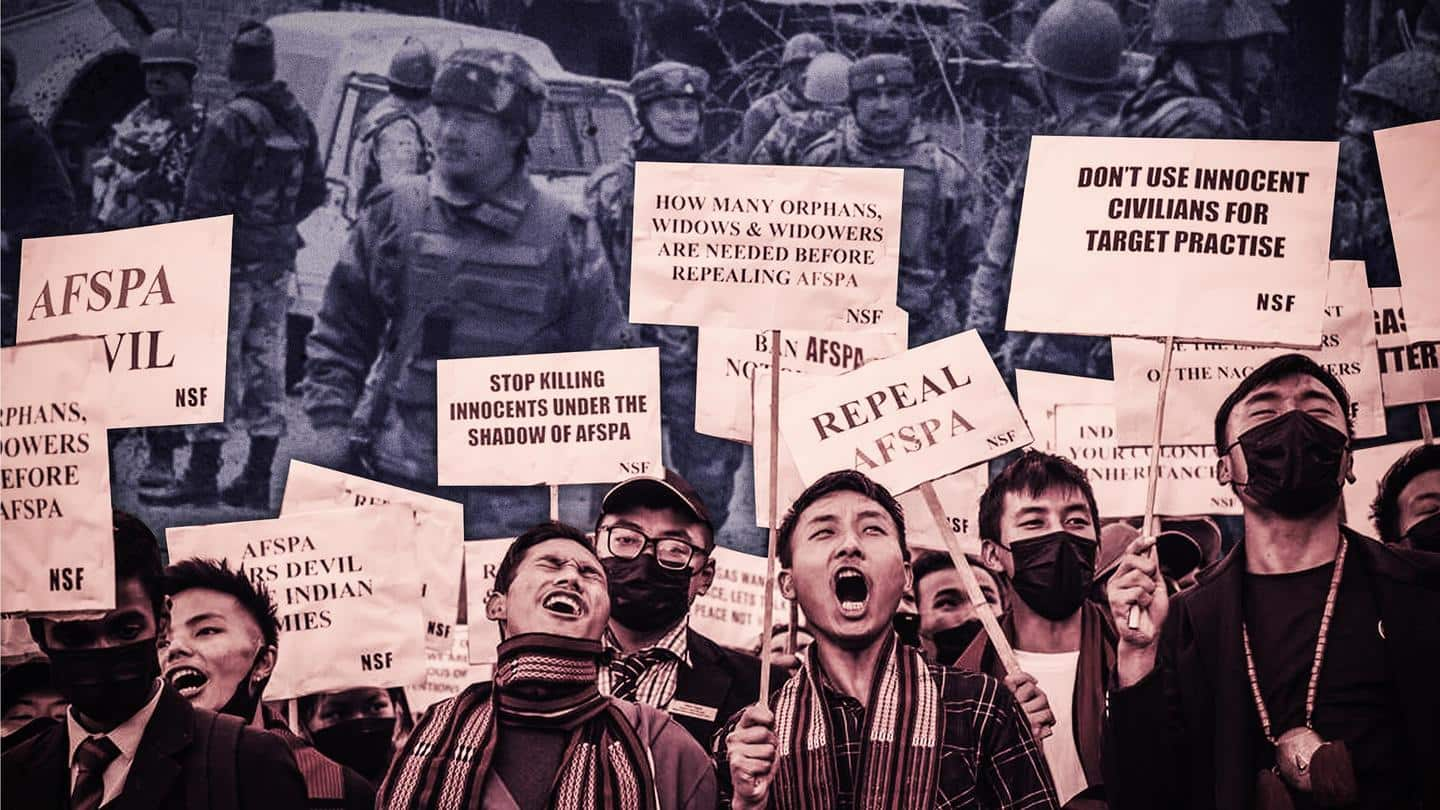
Centre reduces disturbed areas under AFSPA in three northeastern states
What's the story
The Centre has decided to repeal the Armed Forces (Special Powers) Act (AFSPA) in certain areas of Nagaland, Assam, and Manipur.
The move comes after many northeast states demanded the law be removed following the killing of over a dozen civilians in Nagaland's Mon district in December 2021.
The withdrawal in certain districts of the aforementioned states will reportedly come into effect from Friday.
Context
Why does this story matter?
Notably, the decision by the Centre to reduce the number of "disturbed" areas under AFSPA comes two months after Assam Chief Minister Himanta Biswa Sarma hinted a positive development with respect to the law is expected this year.
To recall, following the Mon killings last year, the government appointed a high-level committee to look into the demand for the AFSPA's abolishment in Nagaland.
Tweet
Reduction in AFSPA areas due to improved security situation: HM
Union Home Minister Amit Shah on Thursday attributed the reduction in districts under AFSPA to the improved security situation and the Centre's unwavering commitment.
"Reduction in areas under AFSPA is a result of the improved security situation and fast-tracked development due to the consistent efforts and several agreements to end insurgency and bring lasting peace in North East by PM [Narendra Modi]," he tweeted.
Twitter Post
Shah thanked PM Modi, congratulated people of northeast
Thanks to PM @NarendraModi Ji’s unwavering commitment, our North-Eastern region, which was neglected for decades is now witnessing a new era of peace, prosperity and unprecedented development.
— Amit Shah (@AmitShah) March 31, 2022
I congratulate the people of North East on this momentous occassion.
Background
High-level committee's report was to submit report in March
In the aftermath of the Mon killings last year, the government constituted a committee headed by Registrar General and Census Commissioner of India Vivek Joshi to investigate the demand for the repeal of AFSPA in Nagaland.
The panel was reportedly supposed to submit a report on the issue in March. However, it is unclear whether the report has been submitted yet.
Information
Insurgency in NE states reduced in last 7 years: Centre
On the other hand, the central government has stated that insurgency in the northeast has come down in the past seven years under the rule of the Bharatiya Janata Party (BJP) at the Centre.
As per data provided by the Home Ministry's official website, insurgence-related incidents have reportedly decreased from 1,749 back in 1999 to only 209 in 2021 in the northeastern region.
AFSPA
What exactly is AFSPA?
Originally enacted by the British in 1942 and promulgated in Parliament in 1958, the AFSPA allows armed forces to control and maintain public order in "disturbed" areas.
The AFSPA's Section 4 grants special powers to forces—allowing them to open fire, make arrests without warrants, enter and search without warrants, and have immunity from prosecution.
Section 6 accords immunity to security personnel from legal proceedings.